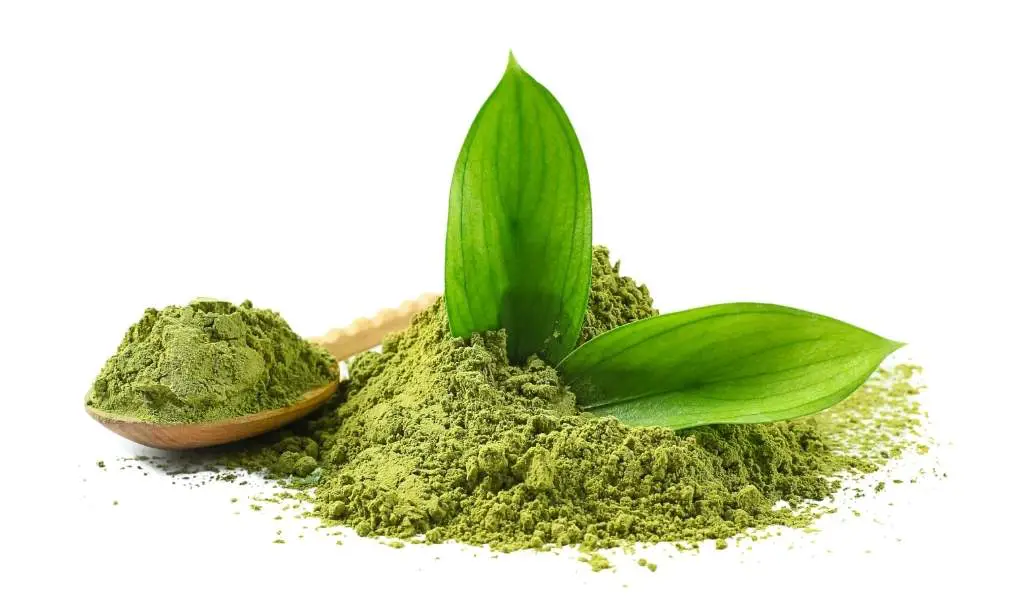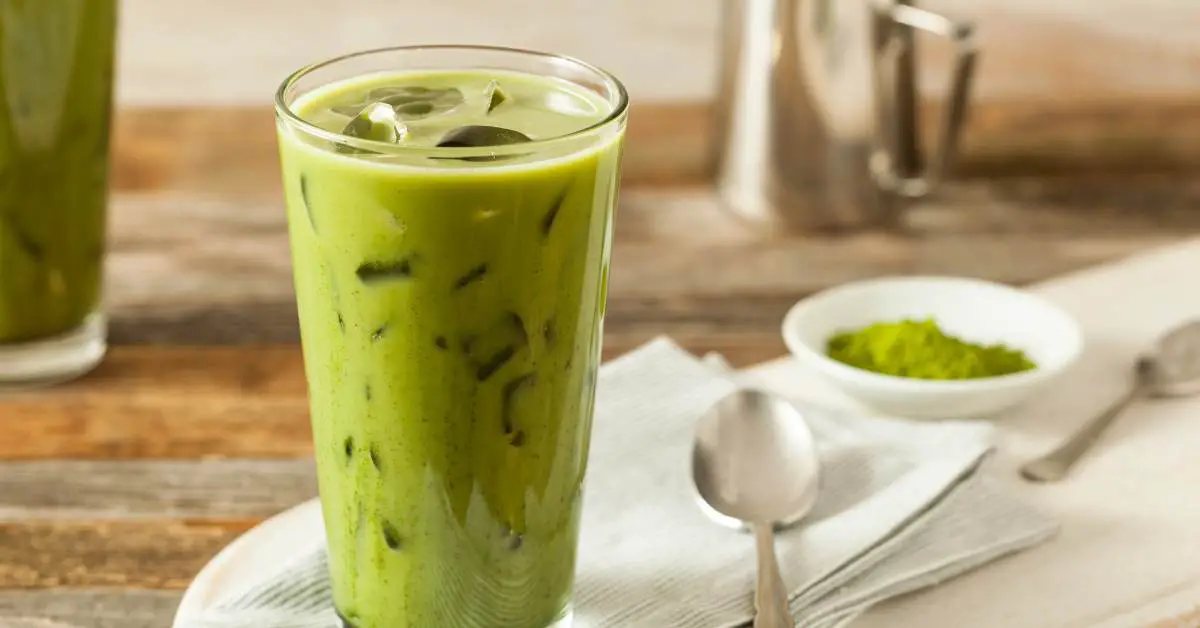Is matcha low histamine? Lately, there’s been growing awareness around histamine intolerance. If you have histamine intolerance, you don’t break down histamine well and experience unpleasant symptoms when you consume foods high in histamine.
If you fall into this category, it’s important to pay attention to the histamine content of foods and beverages and choose ones that won’t increase your body’s histamine burden. Fortunately, we have more knowledge than ever about the histamine content of food and beverages.
Is Matcha a Safe Choice for Histamine Intolerance?
Are there histamines in matcha? To provide some background, matcha is a unique, powdered green tea used in traditional Japanese tea ceremonies for centuries. Unlike typical loose-leaf teas, with matcha you consume the whole tea leaf, packed with antioxidants.
One reason people drink matcha is due to its exceptionally high antioxidant content.
If you’re read my article on the histamine content of tea, you’ll know that green tea is less fermented than black tea, making it a better choice for histamine intolerance. When foods or beverages are fermented, it can increase their histamine content.
Histamine and Caffeine Content in Matcha and Green Tea
Most green tea is low in preformed histamine and other biogenic amines. However, green tea contains caffeine. There’s some evidence that caffeine blocks the breakdown of histamine, causing histamine to stay in your body longer.
One study found that caffeine affects sleep onset in rats and humans by activating histamine neurons. It also found an increase in histamine 30 minutes after consuming caffeine, with the effect lasting for 140 minutes. (1)
This suggests that if you have histamine intolerance, you should be cautious about consuming caffeinated beverages, including coffee and tea.
When comparing matcha to regular green tea, there seems to be quite a difference in caffeine content. Matcha contains between 38-176 mg of caffeine. On the other hand, a typical cup of green tea looks to have around 20-45 mg of caffeine. (2,3)
One reason for this variance may be the different preparation methods. Matcha is made from ground tea leaves, so you end up ingesting the whole leaf. With most green teas, you steep the leaves in water and then discard them. Consuming the entire leaf could explain the higher caffeine levels in matcha.

For many, matcha’s robust caffeine content makes it an ideal morning pick-me-up. However, for those with histamine intolerance, caffeine is something to be mindful of, as it can be a trigger for histamine intolerance symptoms. Overall, matcha seems to pack more of a caffeine punch than green tea.
However, its suitability for a low histamine diet may come down to your specific needs and sensitivities. As with any new food or drink, it’s wise to exercise caution. Also, histamine levels can depend on factors like the quality of the matcha, where it’s grown, and how it’s processed and stored.
The Anti-Inflammatory and Antihistamine Benefits of Matcha
On the plus side, specific substances found in matcha linked to anti-inflammatory effects include the flavonoid rutin, which supports immune function. The catechin EGCG (epigallocatechin gallate )also has anti-inflammatory properties according to studies. (3) Overall, research indicates the various bioactive compounds in matcha help suppress inflammation.
In terms of antihistamine effects, matcha contains the compound EGCG which may have the ability to block a key receptor involved in allergic responses. While other green tea compounds have anti-allergenic effects, EGCG appears to be most potent based on current research. However, more studies are still needed to firmly establish matcha as an effective antihistamine source.
Therefore, matcha shows promise as a source of natural anti-inflammatory and potentially antihistamine compounds. The combination of antioxidants, flavonoids, and catechins seem to provide anti-inflammatory benefits. The catechin EGCG also demonstrates, in lab studies, the ability to inhibit allergic responses. However, we need further research on matcha’s effectiveness as an antihistamine is warranted.
The question is whether the anti-inflammatory and antihistamine benefits outweigh the effects of caffeine on histamine breakdown. From my experience with people who have histamine intolerance, most can tolerate green tea in modest amount, as well as matcha. But we’re all a little different.

Histamine Tracking: Monitoring Your Matcha Intake
When introducing any new food or drink into your diet, carefully monitor your response by keeping a food diary. This is especially important with matcha tea if you have concerns about histamine intolerance or other sensitivities.
A food diary allows you to record when you consumed matcha, how much you had, and any symptoms or reactions you experienced afterwards. You can also note the matcha brand and source in your records. Tracking this information over a period of time, such as two weeks, will help you identify any connections between drinking matcha and your wellbeing.
By diligently journaling your matcha experiences in a food diary, you can make more informed decisions about whether to continue enjoying it. Paying close attention to your personalized response is key whenever you a new food or beverage to your diet.
Is Matcha Suitable for a Low Histamine Diet?
Is matcha low histamine? In the end, whether matcha is suitable for a low histamine diet comes down to your individual tolerance. We each have unique sensitivities and responses to foods and beverages. Matcha offers anti-inflammatory benefits from its polyphenol content, but also delivers a hefty dose of caffeine that may affect histamine levels.
The best approach is to introduce matcha cautiously, starting with small amounts. Pay close attention to your body’s signals and track any reactions in a food diary. This will provide insight into how matcha affects you specifically. Be aware of both its potential upsides and downsides.
If you find matcha aggravates symptoms, try caffeine-free herbal teas instead. However, if you tolerate matcha without issues, enjoy its antioxidant richness and energizing lift in moderation.
As with any food or drink, it’s wise to tune into your own experiences rather than rely solely on generalized advice. Let your personalized response guide you toward the best choices for optimal wellness.
References:
- John J, Kodama T, Siegel JM. Caffeine promotes glutamate and histamine release in the posterior hypothalamus. Am J Physiol Regul Integr Comp Physiol. 2014 Sep 15;307(6):R704-10. doi: 10.1152/ajpregu.00114.2014. Epub 2014 Jul 16. PMID: 25031227; PMCID: PMC4166758. https://www.ncbi.nlm.nih.gov/pmc/articles/PMC4166758/
- “Does Matcha Contain Caffeine?”. Www.Healthline.Com, 2023, https://www.healthline.com/nutrition/does-matcha-have-caffeine. Accessed 29 Sep 2023.
- Kochman J, Jakubczyk K, Antoniewicz J, Mruk H, Janda K. Health Benefits and Chemical Composition of Matcha Green Tea: A Review. Molecules. 2020 Dec 27;26(1):85. doi: 10.3390/molecules26010085. PMID: 33375458; PMCID: PMC7796401. https://www.ncbi.nlm.nih.gov/pmc/articles/PMC7796401/

